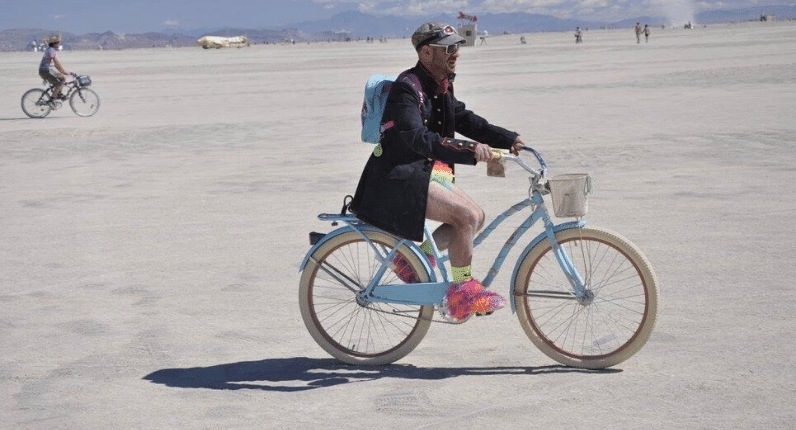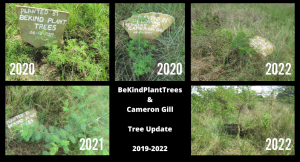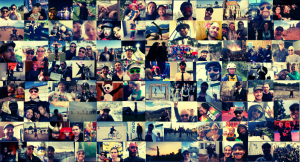Battles and fights, living vs. dying, and more life in his time (Part 2 of 5).
Cam was a fickler for language. He did not like us talking about him fighting cancer. He hated fighting. Even with his martial arts background, he viewed sparring as an art, a dance, and a conversation. He valued peace and harmony and looked for win-wins in every situation.
He hated the idea of “fighting a brave or strong battle” against cancer. Glioblastoma multiformes (GBMs) and anaplastic pleomorphic xantho astrocytomas (APXAs) are terminators. That was never in question. Cam knew that if he perceived this as a fight – him against the cancer – it was one he never had a chance to win. Focusing on fighting a losing battle was a waste of time and energy that he instead chose to spend living. Cam never aimed to beat the cancer; he spent those 7 years focusing on living his best life with it. As we all witnessed, heard and experienced, he did that so so well. Living with, not dying from.
Cam saw his diagnosis as a relationship. He named his tumours. He chose to see his treatment as an adventure, ups and downs, a wild ride, some giddyness and falls from great heights along the way. A playground, rather than a battle ground where cancer was his enemy and he must endure a hard fight with no winners. If Cam died, so did the tumours. Lose-lose. Cam attempted to live with them harmoniously rather than to see his life as a fight. He didn’t love them! Timmy was an annoying but tolerably quiet housemate. When he unsuspectingly moved his mate Webster in, a messy and noisy and exhausting tenant, who took up all the rooms in the house and couldn’t be evicted, the only solution was to spend less time at home with them, and more time adventuring!
While knowing that he would die, Cam also believed that the cancer would not and could not ever take his life. He said he lived far more life in the time he had cancer than before. Cam focused on the life in his years, not the years in his life, and proved beyond question, that it is very much possible to live more life in less time. He was never dying. He was truly living, every day.
Cam definitely felt the weight of fear and sadness that came from knowing that his life would take a different path to that which he had mapped out. But time wasted on worrying was time not living and having adventures, and so he more than just accepted his situation; he embraced it, and lived to make every second count. He said many times, “we are all terminal”.
There were many times that doctors said to Cam, “there is nothing more that we can do for you.” Cam eventually realised that they never could do anything for him and that he didn’t really need them to. It was in his control how he lived and how he died. Cam was strongly moved by the words of Viktor Frankl. “Everything can be taken from a man but one thing: the last of the human freedoms—to choose one’s attitude in any given set of circumstances, to choose one’s own way.”
It is what he could do himself that was all that mattered. And he chose to live, every second.
This is Part 2 of 5 of Teresa’s eulogy for Cam. Thank you for reading. Click here to return to the introduction (Unfinished Symphonies).
Want to learn more about Cameron Gill’s journey, his legacy, and his legacy projects? CLICK HERE for Cam’s official Facebook legacy page. We have heaps more of his story to share, so like and follow to stay updated.



